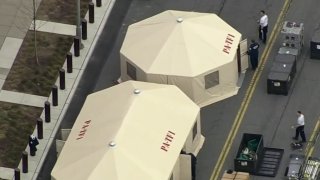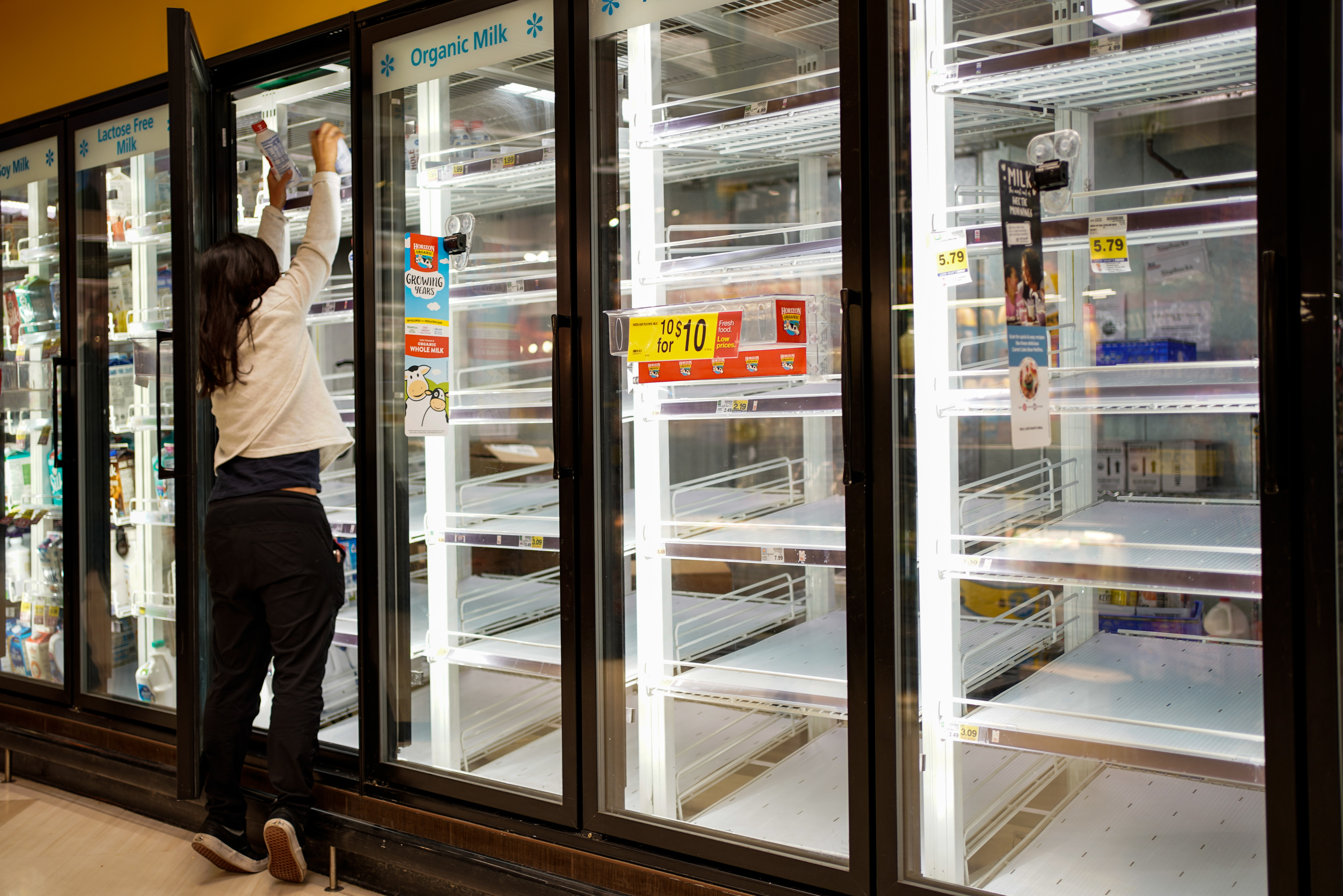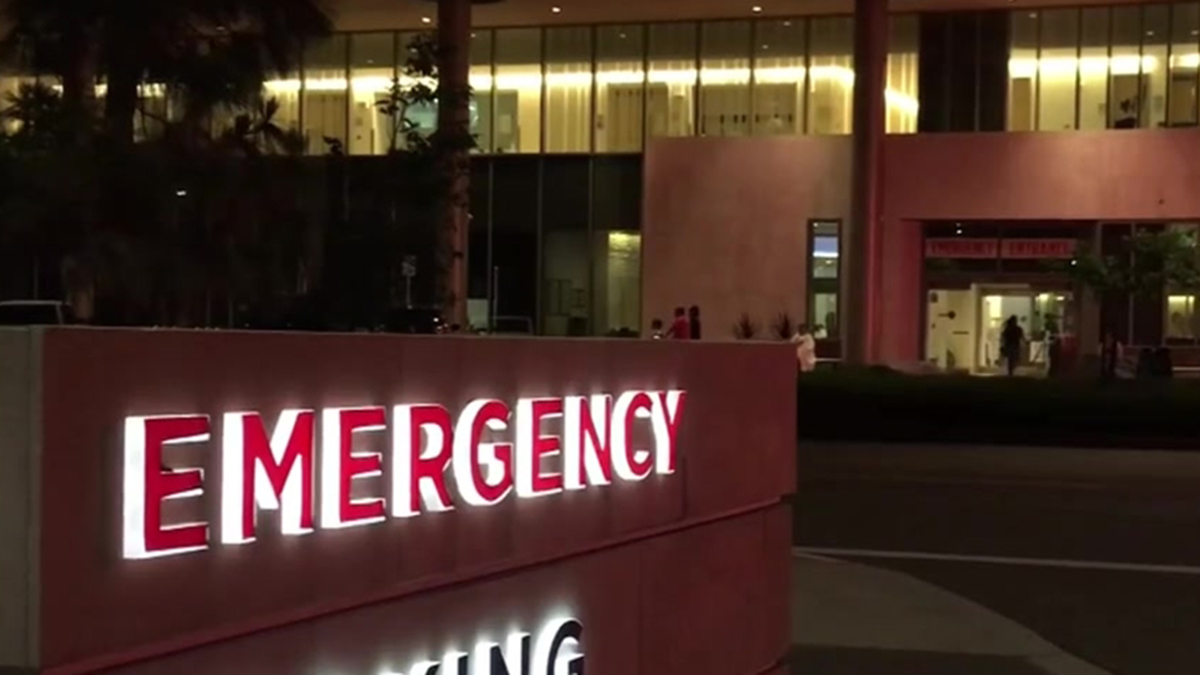
Throughout life, I’ve had a unique, front-row view of disasters -- as a first responder in college, but even more so in my current role as meteorologist for the last 14 years, covering hurricanes, tornadoes, flooding and severe storms.
These experiences also helped lead me to a master’s degree in emergency management, where I learned how to think critically under pressure during times of crisis.
When covering these types of events, there is always a feeling of adrenaline, whether it’s arriving at a house fire or riding out the eyewall of a hurricane. You can see tremendous loss time after time and you have to make sure that you don’t become desensitized to it.
This is the first time in my career witnessing a pandemic, but the same kind of risk and hazard analysis can be applied. During these times, know it’s OK to be emotional, whether you’re directly or indirectly affected. This may seem clichéd, but you can also see the best of humanity during some of our most difficult times.
While there are many unknowns right now in regards to the new coronavirus, there is also a lot that we do know. If we focus on what we do know, it might make this pandemic seem a little less scary. I won’t regurgitate the numbers, which are admittedly scary, but then again there is a lot in life that’s scary. People get through the tough times and usually emerge stronger than they were before.
Why is this different than a hurricane? Or a tornado? Or an earthquake?
Take hurricanes, for example, which we track for days. As the track becomes more certain, you scale up your response. There are evacuations and preparations made before the storm makes landfall. The recovery is oftentimes very long, depending on the strength of the storm.
During a tornado outbreak, we may know that the day ahead could be active, but we won’t know who will get hit until the thunderstorms actually form. The physical recovery can take a long time, but typically the damage is localized.
In the event of an earthquake, there is little, if any, warning and, depending on the intensity, the recovery could take a very long time, with widespread damage.
Now, let’s look at the current pandemic. We’ve been tracking its progress globally for the last couple of months. You can’t see it – literally, the virus is microscopic. Yes, businesses and schools are shuttered and fewer vehicles are on the road, but also recognize that infrastructure remains intact and, if you’re lucky, the sky is blue and the sun is shining.
During a hurricane, there are long gas lines, grocery stores quickly go empty and traffic can be worse than L.A. or Boston at rush hour. Why? Because during a hurricane, the supply chain can break, infrastructure can be destroyed and you can be in the dark for days, weeks, months or, as in the case of Hurricane Maria, even up to a year.
Roads are washed out or covered by trees, making it impossible or almost impossible to get fuel tankers, tractor-trailers filled with food, linesmen and first responders to the areas hardest hit. Knowing that this is the outcome following a hurricane, it explains the mad dash for food, gas and other supplies.
Comparing that to the pandemic we are experiencing, right now, we don’t need to hoard food and supplies, as the supply chain shouldn’t break as it does during a natural disaster.
If it does, that’s when the national guard could step in. In this case, the guardsmen and women who are not medically trained could be used to deliver groceries and medication to the elderly and others in need.
Typically, you don’t hear much about the emergency management system unless it breaks, but it’s made up of women and men that know how to think critically, quickly and efficiently.
Think about this: there are plenty of professionals in the emergency management field who won’t have to spend time conducting damage surveys or search and rescue missions, and they can be used creatively to service our greatest needs. You can help them by doing your part: practice social distancing and avoid any unnecessary trips.
Losing your job might be a huge stress right now, along with concerns about the health of those most at risk of getting sick and maybe even having to homeschool your children for a few weeks, but it’s worth it to take a little solace in the fact that we know when this is over, we won’t have weeks, months or years of cleanup. We will be able to stand up, brush ourselves off and get back to life, hopefully with a newfound strength and resilience.
Of course it might take a little time because of financial hardships or other personal circumstances, along with adjusting to what might be the “new normal” post-pandemic, but we’re already ahead of the curve when it comes to the recovery process because federal resources won’t have to be spent making expensive repairs or on extensive cleanup.
Barring an unforeseen simultaneous disaster, our lights will stay on, we’ll have a roof over our heads and other modern-day amenities will remain intact. If you see a medical professional, grocery store worker or delivery driver over the next few weeks, be sure to tell them thanks.
You normally see me telling you the weather or talking about climate change, but I’m also a former first responder and have my master of science in emergency management. I’ve been on the ground following disasters ranging from hurricanes to tornadoes. During a crisis, all normalcy is thrown out the window. I’ll be coming up with tips throughout this crisis to help make your life more “normal.” If you have questions, comments or concerns – feel free to email me at Chris.Gloninger@nbcuni.com or follow me on Twitter @ChrisGNBCBoston



